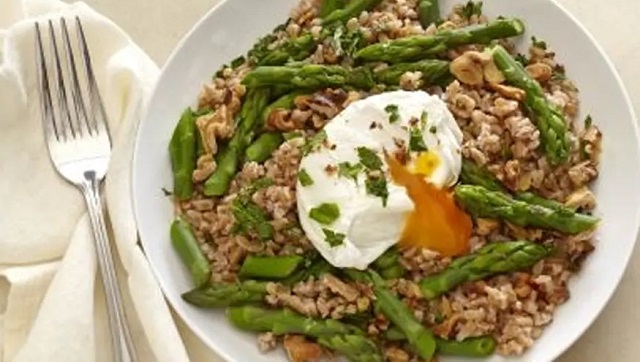It is a well-known fact that eating protein-rich diets can help you reduce weight and provide your body with the amount of energy it requires to function. It has also been proved that a protein-rich diet has the ability to improve cardiometabolic abnormalities such as obesity, insulin resistance (which later causes diabetes), dyslipidemia (abnormal amount of triglycerides, cholesterol and fats), and increased blood pressure. Protein is available in both animal sources and plant sources. But which one is better? What are plant proteins? As the name suggests, plant protein is the protein derived from plants. Some of the sources of plant protein are lentils, peas, chickpeas, kidney beans, black beans, pinto beans, tofu, hemp seeds, spirulina, quinoa, soybeans, lentils, millet, barley, oats, guava, banana, blackberries, chia seeds, nuts and nut butter. Is the plant source of protein better than the animal source? Animal protein sources include meat, fish, poultry, eggs and dairy. These are considered to be sources of the highest quality of protein. However, the animal source such as red meat can result in various other health problems including heart disease and stroke. Whereas the diets high in plant protein such as legumes, whole grains and nuts have the ability to reduce the risk of developing diabetes, heart disease and stroke later in life. The plant protein study In a recent study published in the journal BMJ in July 2020, scientists from Iran and the US examined the dose-response relation between intake of total, animal, and plant protein and the risk of death from all causes, cardiovascular diseases, and cancer. A dose-response relationship is one where the levels of exposure are associated with either an increasing or a decreasing risk of the outcome. Here, the exposure is to protein and the outcome is death. The scientists evaluated the results of 32 studies which reported death risk measures for all causes, cardiovascular diseases, and cancer in adults of age 19 or older who consumed both the sources of protein. The participants were then followed-up with after 32 years and it was seen that among 715,128 participants, 113,039 deaths were reported. Out of these, 16,429 people died due to cardiovascular disease and 22,303 died from cancer. The result of the study: Plants are the better source of protein The scientists found that consumption of a diet packed with a high amount of proteins can lower your risk of dying from various causes. Furthermore, a diet rich in plant protein reduces the risk of death by 5 percent. They also found that people who consume plant protein were less likely to die from cardiovascular diseases such as coronary heart disease and stroke. Plant protein had positive effects on the markers of cardiac health, which include the levels of blood lipid and lipoprotein, blood pressure and blood sugar levels. The scientists further added that people who consumed plant protein gained 3 percent extra energy as compared to those who consumed animal proteins. The researchers suggested that people should increase their intake of plant protein as it has a larger effect on longevity and is a healthier option than animal protein. For more information, read our article on Nuts and seeds. Health articles in Firstpost are written by myUpchar.com, India’s first and biggest resource for verified medical information. At myUpchar, researchers and journalists work with doctors to bring you information on all things health.
Researchers have suggested that people increase their intake of plant protein as it is a healthier option than animal protein.
Advertisement
End of Article


)

)
)
)
)
)
)
)
)



